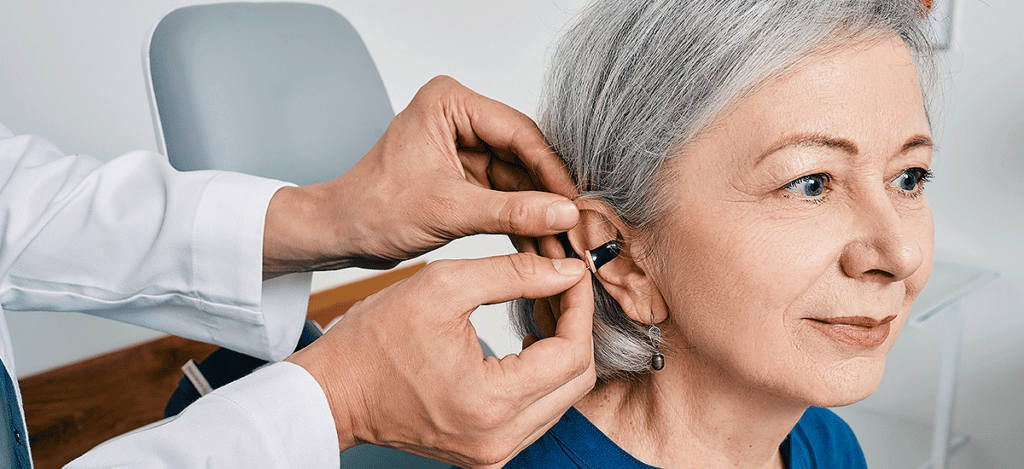Are you in the process of deciding to treat your hearing loss with the use of hearing aids? It might seem difficult to decipher through all of your options but knowing what the most common styles are and how they work can help you make the right decision for you. These are some of the most popular hearing aid styles and some of their important features that you’ll want to know when choosing your hearing aids:
In-the-Ear (ITE)
ITE hearing aids are as the name describes, in the ear. There are a number of different styles of ITE devices, with some of them being totally in the ear canal, and some of them filling a portion or the entirety of the shell of your outer ear.
Behind-the-Ear (BTE)
Behind-the-ear hearing aids also come in multiple styles, but the majority of them work in a similar way. The device sits behind, or around the top of your ear and is connected with a tube or a wire to a part that sits in your ear. That part is either an earmold or an ear dome. BTE devices can sometimes be a good option for those who experience profound hearing loss.
Completely-in-the-Canal (CIC)
These devices sit fully in your ear canal. CIC hearing aids are usually very small and more discreet than other styles. There are even “invisible-in-the-canal” (IIC) styles that sit very deeply within the ear canal so they are harder to see.
Receiver-in-Canal (RIC)
Receiver-in-canal, or sometimes referred to as receiver-in-the-ear (RITE) devices are a type of BTE hearing aid that has a speaker that sits in the ear canal and connects to a microphone and processor piece that sits behind the ear. These hearing aids are known for having very good sound quality, as well as more advanced technologies.
There are a lot of styles of hearing aids to choose from but knowing more about how each one will work for you can help you make the right decision. When deciding on the best hearing aids for you, make sure to talk to your hearing healthcare provider about your specific lifestyle needs, and your type of hearing loss. They will help you make the most out of your devices.
Call our office today to schedule an appointment to discuss all of your hearing aid options.

